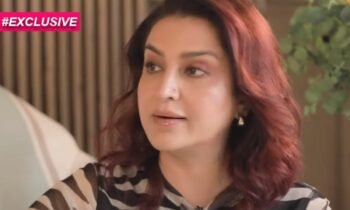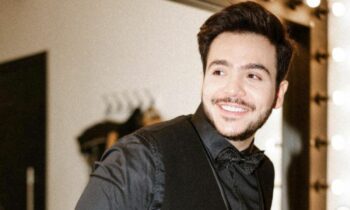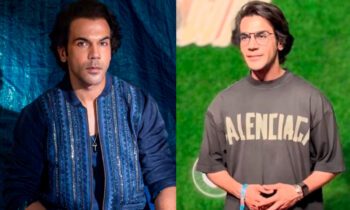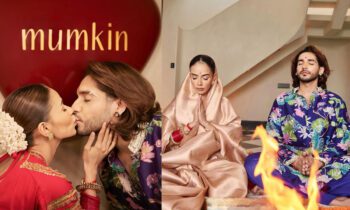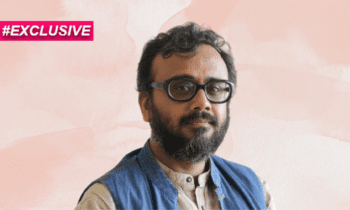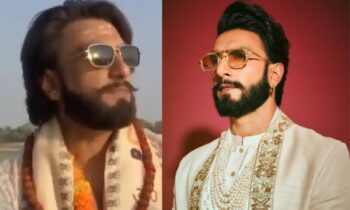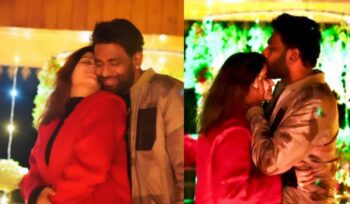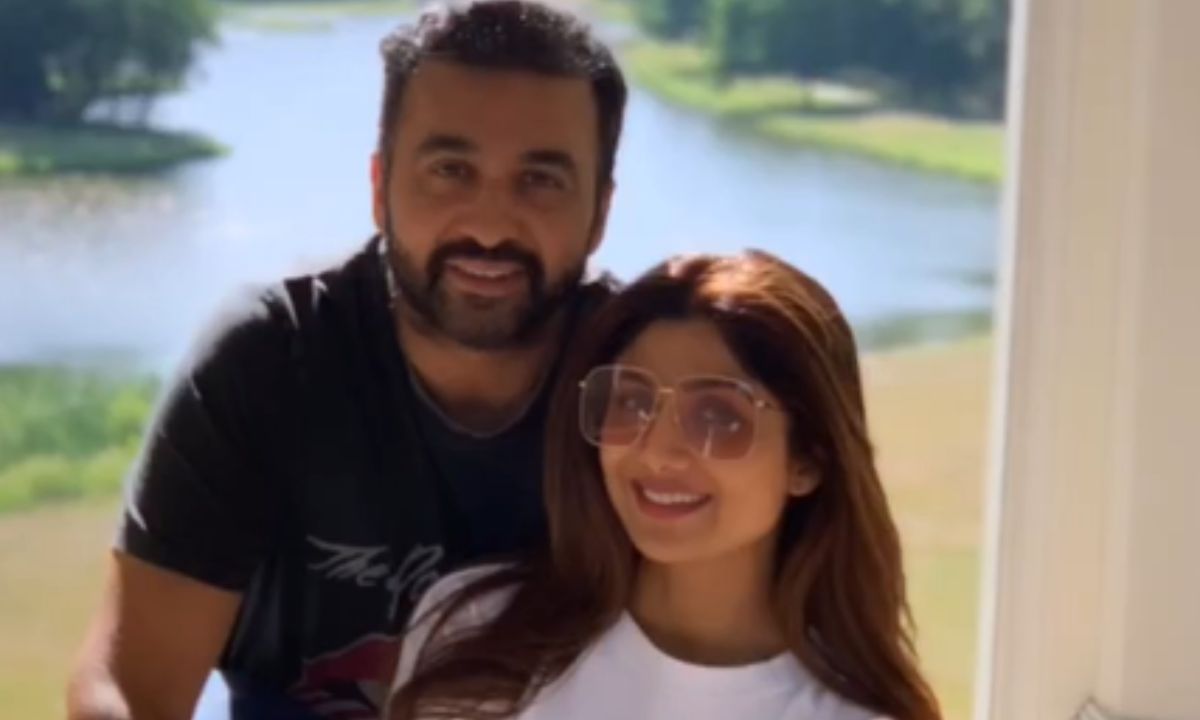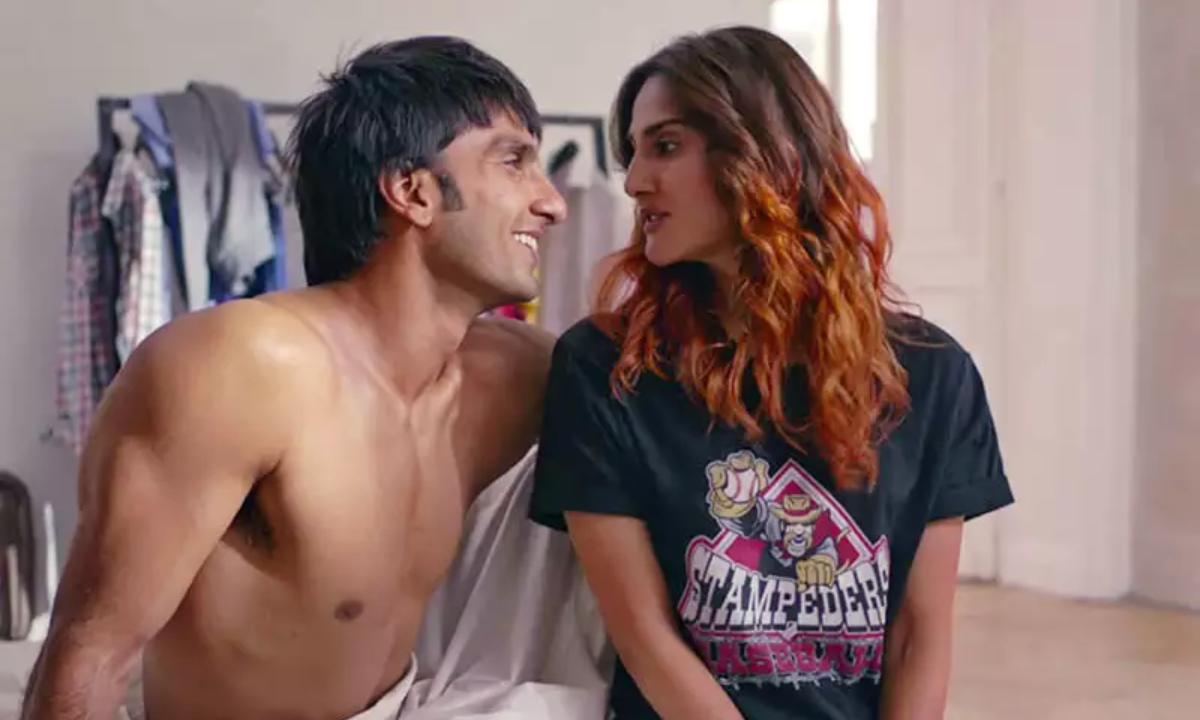EXCLUSIVE! Editor Antara Lahiri On The Craft Of Film Editing, Women In Bollywood And The One Thing We Need To Stop Blaming Editors For
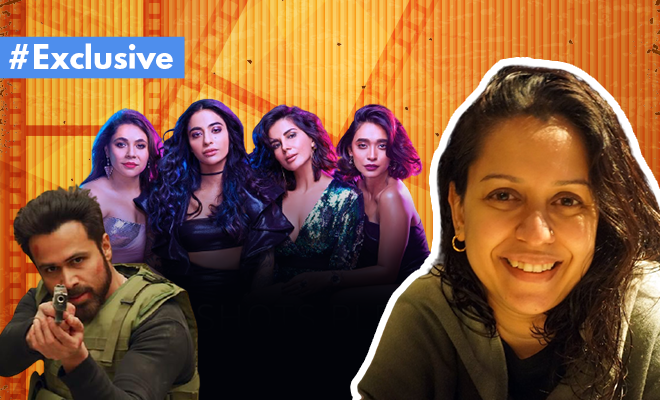
The actual role of a film editor is sometimes shrouded in mystery, usually under-appreciated and often misunderstood for the extent of impact it can have on a film. To take cues from a friend who likes to point out the travesty of Bohemian Rhapsody winning the Best Editing Oscar despite abysmal work, people plainly don’t get it. I cultivated my own understanding of this technical aspect of filmmaking when I began reviewing films for a living, but also because I love cinema and want to appreciate the art and craft of it. So when I got the chance to interview a Bollywood film editor, Antara Lahiri, who has worked on films like Shakuntala Devi, Bhangra Pa Le and Yeh Ballet and series like Four More Shots Please! and Bard of Blood, I wanted to do my research thoroughly.
I was excited at the prospect of interviewing one of the women from behind the scenes, because we’ve only now started seeing more of them, haven’t we?
Well, what a surprise I was in for! Turns out, while the gender imbalance is astonishingly prominent in film direction, women have a history of ruling over the edit table. Some of the biggest filmmakers of our times, from Martin Scorsese to Quentin Tarantino, have preferred to work with female editors like Thelma Schoonmaker, Alisa Lepselter and Sally Menke on their films. In fact, in the history of the Academy Awards, some 15 movies edited by women editors have won the Oscar for Best Editing—Mad Max: Fury Road. The Departed, Star Wars, Raging Bull, Jaws and many more.
However, what’s more interesting is that this attribution to our gender somewhere has sexist connotations. You see, with male filmmakers dominating the industry, women were relegated to the editing room, where the task of cutting film was perceived akin to sewing and stitching, which was perceived as a feminine talent. Sigh.
Today, while other film industries are a little more appreciative of its editors, Bollywood, not so much. I mean, let me ask you, do you even know what a film editor’s job is? Or, did you know that they are not usually responsible for a film having a longer runtime? No really!
In a candid, in-depth conversation, then, with Antara Lahiri, we got down to unpacking her passion for film editing and her journey in Bollywood. I was bustling with all sorts of question for someone who has seen the non-glamorous side of the movie industry. Do women really make better editors? Do male and female filmmakers have different working styles due to ingrained gender norms? And of course, what makes a film ‘well edited’?
Q: What drew you to film editing and how did you begin your career in the field?
Antara Lahiri: I don’t come from a family where anyone is working in films or filmmaking, and just happened to stumble into it. My father was very strict and he didn’t let me watch TV. So I enrolled in a Mass Communication course in Calcutta’s St. Xavier’s College. because I figured if I just study TV and films, then he has to let me watch them!
From there on what happens is with all these courses, you do little exercises and you are working in groups and you’re putting together little films and so on. It’s obviously very basic but I think it gives you a sense of every department—from cinematography to editing and sound design—adds value to a film. That understanding evolved over a period of time, more when I started working professionally in Bombay in my early 20s, handling post production for a nonfiction show for MTV.
The great thing about Bombay studios and their assembly-line editing is that if you don’t know something and you want to learn, you just sit behind and observe. I observed these editors and had picked up the basics. Most studio editors are working double-triple shifts and not getting enough sleep. So when they wanted to rest, they told me I could do a little bit and help them out.
Of course, eventually, I went to FTII (Film & Television Institute of India) where the learning was more evolved. We were understanding the film workflow, and even handling film which in itself is something like now you won’t get to do. A mixture of all of these experiences is what makes you understand what you are more inclined towards.
Q: At FTII, did you find a lot of women in your class, training for roles behind the camera?
A: I joined FTII in 2004, and in my batch, there were a lot of women on campus, and in the film editing course. Editing, by and large, has always been a female-dominated profession.
It wouldn’t be wrong to say that when films were just starting off, the early editors were women. So it wasn’t a surprise. I think, for instance, cinematography and sound design are still more male-dominated departments, although there are women doing some fantastic work in those fields. But this pattern is reflected at FTII, where there are fewer women in sound design and cinematography compared to a fair number of women in editing.
However, very early on, it is said that at one point, the girls hostel literally had some three or four women! But by the time we went there, there was no place in the girls hostel. So we have actually lived in the boys hostel!
Also Read: Kate Winslet And Salma Hayek’s Interviews Prove That Intimacy Coordinators Are A Dire Need On Set

Q: I read somewhere that Quentin Tarantino wanted to work with a female editor because he thought they would be more “nurturing” with his movie. Is this a real belief amongst filmmakers about women editors?
A: No, I don’t think so. In Bollywood, to my experience, I feel like they want women on board when they’re dealing with gentle, sensitive subjects. But if you’re working on an action film, they want a man to edit it. I’ve been told point blank to my face, “Tu kya karegi? How will you know an action film? Boys have grown up playing with guns and cars, so it’s easier for them to understand that language!”
Of course, there are few women editors, DOPs (Director of Photography) and sound designers who have broken into the action genre. But I would still say they’re few and far between.
What really annoys me sometimes is that we were told that women are good editors because they are nurturers at heart, since they bring up children and look after them. All of this is also a form of gender stereotyping, no?
Editing is not well-suited to women because they are nurturers per se. I think it is more of a personality type. So you can be a man as well, and if you have a certain personality type and approach to life, it just makes you a better editor.
Q: Stanley Kubrick has said that he loved editing more than any other process of filmmaking. Do you believe good editors make good directors and vice versa?
A: For sure. I feel like writing, directing, and editing are really conjoined, and if you have good writing and good direction, it translates into good editing. If any one of these departments are falling short, it will reflect in the final product.
It’s also the kind of initiation that you have into films when you start off as an editor. You start seeing a film very differently, with a certain amount of objectivity. If you then make the transition to being a director, it’s definitely helpful because you are almost editing in your head from the beginning of the film.
Some of our best directors in Hindi cinema have been editors before they got into directing, like David Dhawan or Rajkumar Hirani, even Sanjay Leela Bhansali…. They were all in FTII’s editing class, and their knowledge and experience reflects in the way they shoot their films.
Also Read: For The First Time, 3 Of The 5 Golden Globes 2021 Best Director Nominees Are Women. Here’s Why It’s A Bittersweet Feeling!
Q: Is it better that filmmakers have a precise vision of what they want to shoot and execute it with no wastage? Or is it better to over shoot and then have a lot to choose from when you’re on the edit table?
A: I think you have to find a fine balance. The problem with overshooting, in my experience, is that when you’re given rushes which have every angle possible, it’s hard to grasp what the director has in mind and what the point of view is. How are you approaching the film? Whose point of view are you approaching it from? It can’t be from the POV of all the ten character in the film. So if you’re focused on getting that point of view clear and then shoot around it, maybe giving some options in terms of angles in the process, that’s great.
I’ve been very lucky that I assisted on a few films which were shot on celluloid. And at some point when the transition to digital happened, I saw that the sheer quantum of footage that is shot just increased almost five-fold or six-fold. Earlier, it was very expensive to shoot on film and process it, so people were very careful about how much they shot. With digital, obviously, it got cheaper, and people began over-shooting. I think that’s where a little discipline went for a toss.
Q: What do you look for when choosing your projects?
A: The first thing, of course, would be the story, the plot and the genre. I really like to do something I’ve not done before. Women in particular, and in my case, I’ve been offered a lot of films which have women at the core of the story. It is great, I love it and I wouldn’t change it for anything. But I think after a point, you want to do a little more than just the same stuff.
Other than that, of course, the people you will be working with are very important. Who’s the producer? Who’s the director? What kind of an equation you feel like you can have with them because you’re going to be working with them for months on end?
Eventually, you have to get to the budget, which is also very crucial. It’s always a problem with editors because there’s very little budget reserved for post-production. So that is definitely a major consideration.

Film editor Victoria Boydell has said, back in 2016, “There are still far too few of us working on major films – I don’t know any female editors who have become directors and it’s a shame. What goes on in the cutting room is such a mystery and when a film is perfect, the public just see a perfect film and don’t even think about the editing. Compared to composers or cinematographers, editors are just not celebrated enough as artists.” I can only imagine what not getting their share of appreciation might feel like to editors. I had to ask if Antara felt the same.
Q: In the West, let’s say Hollywood, people know film editors and give them their due credit and appreciation. In India, though, the audience doesn’t really know or appreciate a film’s editor, but love to criticise them for the length of the film. Do you ever feel under-appreciated?
A: You know these days, agar lambi film hai, people like to criticise the editor without knowing what an editor’s job is!
The problem is that everyone is a reviewer and a critic now. My job is not necessarily to keep the film’s length in check. Those are larger decisions made by producers, directors, writers, and so on. We editors actually end up taking a lot of flak for those kind of decisions. To an extent, sure, we can aim to tell the story in a ‘crisp’—I hate the word!—and concise manner. But outside of that, not really.
What people don’t realise is that we are also choosing performances and piecing the story together. So if you are absorbed in a film and you stop seeing the cut points and the technicalities of it, that is also indicative of good editing and good filmmaking. When you get pulled into that world, that seamlessness is what I, as an editor, am usually aiming for.
Yes, you’re right. There is very little recognition. However, I think I’d say that there is more recognition now than before. Because there are people like you who are reaching out to editors to ask them about themselves and their work. But, ultimately, even my own parents don’t exactly understand what I do, beyond the basics! That is also because there’s a lack of awareness generally and of understanding the craft because no one wants to talk about it.
Q: So for people who don’t understand the nuances of what film editing is, what makes a film ‘well-edited’ and deserving of a ‘Best Editing’ award? Or what should film reviewers like me look for in a movie to judge its editing?
A: Like I said before, when you are drawn into the film and you’re not snapping out of it…. If it’s seamless and the experience is wholesome for you, I think that is a major indicator of good editing. Another thing that we don’t talk about a lot is sound design, because in post-production, both editing and sound design work at a very subliminal level.
You’ll never be able to understand ki kya achha hai, but definitely feel ki kuch toh achha hai! Something in there is affecting you, drawing you closer and making you invest in the story and in the characters and their predicament at the moment.
So that is what I personally look out for. How absorbed was I in the film? And when I snap out of it at the end, how much of a separation do I feel? You kind of come back into reality and you miss that world. And that world has been carefully created, put together shot by shot.
You know we like to give awards for ‘Best Editing’ or ‘Best Film’ and so on. But I don’t think you can separate one from another. I think if it’s a good film, it elevates everyone’s craft.
Q: What is your favourite genre that you like to edit? And what feels more challenging to you?
A: I love watching crime, a lot of slasher films and zombie films and gory stuff. Also, really dark films that are in the grey zone, where you don’t have clear-cut good guys and bad guys. I don’t really like romantic comedies, and for that reason, I haven’t worked on many rom-coms in my career. It might be something that will excite me eventually, but none have as yet.
I really enjoy watching action. Which is why I was ecstatic when I was offered Bard Of Blood because that’s the first time I got to edit action. There were explosions and car chases, and people chasing each other, and I’d never done that before! I was really happy editing it because action is a rare thing to be offered to a women editor.

Q: I remember you shared an article I wrote that talked about a survey about female filmmakers in Hollywood having a stellar 2020. The study also said that women filmmakers are more likely to hire women crew to work on films. Is that something you see happening in Bollywood and Indian OTT?
A: I think so, yes. Not just for women, OTT generally gives everyone a chance to do so much more, experiment and tell stories the way you’d like to, without feeling the pressure of the box office that is limiting in some ways. As you mentioned in your article, some of the best content last year was made by women.
For example, Anu Menon, who I worked with on Shakuntala Devi, is someone I know from working on Four More Shots Please (FMSP). The producers of the series are Rangita Nandy and Ishita Nandy, who have always been very invested in hiring other women because they want to tell stories of women, for women, and by women. So we ended up having a very women-heavy team in FMSP. And when we graduated to Shakuntala Devi, it was the same setting.
That being said, you didn’t get hired on these projects just because you’re a woman. If you’re a woman, it’s a plus, because the vibe is helpful to have so many women on board. But you also obviously have to be really good at what you do and I think so much of that reflects in both Four More Shots Please and Shakuntala Devi. All the women who were involved were actually bringing something extra to the table than just their gender.
Also Read: “Stories Need To Become Bigger Than Gender.” Shakuntala Devi Director Anu Menon Talks About Working With Other Women, And How She Answers The ‘Female Director’ Questions
Q: Do you believe that women tell women’s stories better?
A: I feel it would be a generalisation to say that, because the first thing I think of is Delhi Crime Season 1. Even though the director is a man, (Richie Mehta) the empathy and sensitivity with which he told the story, I think gender just stopped mattering there.
However, I would again look at Anu Menon, for instance, and the way that she wanted to tell Shakuntala Devi’s story is a very different take on a woman. In mainstream Indian cinema, there is a tendency to show that the woman is the sacrificial one in the relationship and will never think about herself, only the other person. The best part about Shakuntala was that it kind of subverted that image and you were looking at this very selfish woman who always puts herself first, even when her daughter was concerned. And even then, when you watched the film or read the script, you didn’t hate her for it. You disliked her, wondering why she was doing this. But she is never the villain.
This fine balance comes from a woman’s perspective because she’s also pulling from her personal experiences. When her personal experiences filter into the narrative, it helps the film to stay in that grey zone rather than go completely back or white.

Also Read: Delhi Crime Producer Pooja Kohli Talks Emmy Win, Censorship And OTT Ushering In A Women’s Era In Content
Q: You’ve worked with a lot of female filmmakers like Anu Menon, Sneha Taurani, Nupur Asthana, as well as male directors. Is there a difference in the way female filmmakers conduct themselves or take decisions, because there’s more pressure on them to prove themselves?
A: I think that is something that comes with the territory. Filmmaking, in general, is a lot of pressure, regardless of whether you’re a man or a woman. But I do agree with you that it is harder for women filmmakers.
This is something I keep feeling even now, that when a woman is making a film, there’s always pressure on her to get things a 100% right. If she falters even a little, there’s a lot more criticism. For generations now, men have been making films and they’ve gotten away with a lot more. So yes, I think there’s a lot more scrutiny on women filmmakers, for sure.
Also Read: Alankrita Shrivastava Says Women Filmmakers Are Judged More Harshly Than Male Ones. There’s Some Truth There.
Q: Does the insider-outsider debate, which is a hot topic in Bollywood, apply to those working behind the camera? Was it harder for you to get into the industry as an outsider and find good work?
A: I could be wrong but, possibly, it doesn’t affect us quite so much as editors since we are people hired for specific jobs. I think it applies more to directors, for instance. They are the ones who are trying to get the project greenlit, meeting studios, hiring people, and so on.
Having said that, I’ve worked with people who are very much from within the film industry. And it has not been easy for them either. If at all for actors, it’s just about getting your foot through the door. At the end of the day, it’s how you deal with the pressures and the circumstances and how you conduct yourself, what film you work in or what film you direct…. That’s what ultimately counts.
At this point, we’d both been talking for roughly half an hour! And I finally announced to a Antara that we were done with all the heavy lifting! It was now time for fun questions!
Q: What are some of your favourite films and shows to come out of 2020, in terms of editing?
A: I’d say Schitt’s Creek. The timing and the way everything is just right, Uou can’t pick a single thing to criticise! And that’s actually a perfect example of what I was referring to earlier, about being drawn into the world. I really drew out the last season because I was so afraid that it would end and I wouldn’t know what to do after it was over!
Also, Masaba Masaba! I loved that show!
Q: What’s a film(s) that you consider textbook for editing?
A: Not sure if there’s anything specific to editing. But just for the craft of it, I feel you can pick any Satyajit Ray film. For me, any of his films do it. If at any point, I’m feeling unsure of myself in any capacity, want a bit of a refresher, of if I want to know how to crack something, I find it always helps to watch his films because they’re so pure in craft.
Q: Dream directors to work with? Dear or alive!
A: Someone who’s not alive, I think I would have loved to work with Spanish filmmaker Luis Buñuel; he made really surreal films.
In India, everyone makes different films every time, so I would favour genre over the director. And that’s also why I’d want to work with someone like Guy Ritchie (maker of slick gangster films; known for Lock, Stock and Two Smoking Barrels, the Sherlock Holmes franchise, The Man From U.N.C.L.E). I love his storytelling and he does very particular kind of films.
Q: What’s something that you’d want to advise anyone who wants to pursue a career behind the camera?

A: One of the most important things is actually to just to understand that there’s no glamour at all. So don’t come into it thinking that there will be any stars around who you will necessarily be interacting with. For women, in particular, I think, the message would be to trust your instinct.
I feel a lot of times in the way that we women are brought up, we are more inclined to second-guess ourselves. But my learning over the last few years has been to always go with instinct over everything else. Even if everyone tells you it should be a certain way only, just trust your instincts. Because, I believe, for women, our instincts are one of our strongest personality traits. So rely on those.
Ah, well said, Antara. Well said. At this point, I realised new questions would probably keep popping up in my head, because talking films can be a fascinating conversation, any day. Talking to Antara Lahiri was illuminating, and made me realise that we give far too less credit to the hard work that goes into making a good film. Blinded by the shining stars? Methinks.
What’s more, I think that women in film are at long last having their moment. As Antara pointed out, film institutes are brimming with women who’re going to soon go out there and create some incredible content, if given the right opportunities and not undermined because of gender. That’s why understanding what they do and supporting their talent by speaking to and about them is critical as well as enriching for anyone who appreciates movies.
Not for nothing do I call this one of the most interesting conversations I’ve had in a while.
https://thehauterfly.com/culture-2/exclusive-lust-stories-producer-ashi-dua-talks-about-at-the-emmys-her-love-for-anthology-films-and-nepotism-in-bollywood/






